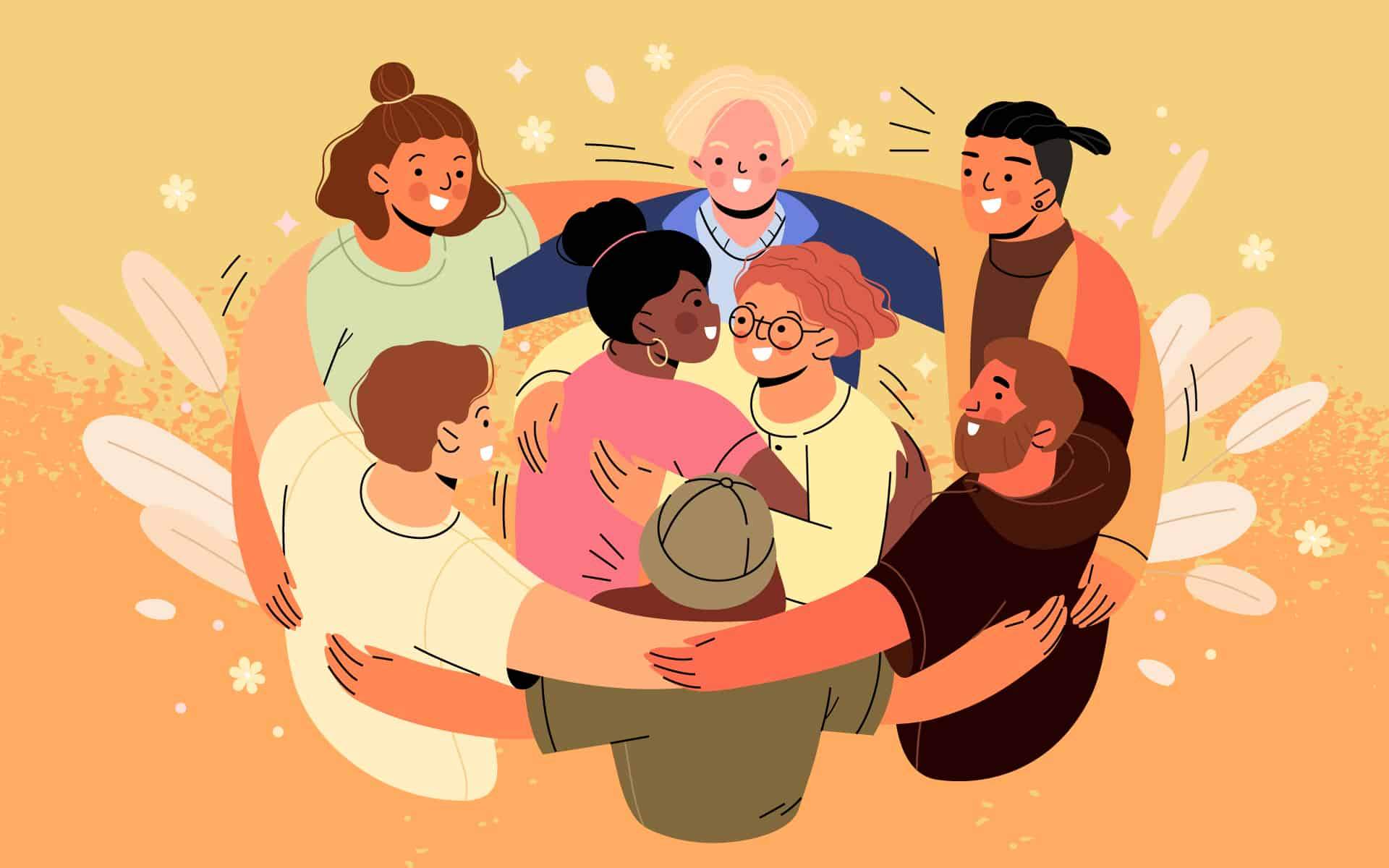Humor begets more than LOLs—Scott Aukerman, creator of the podcast Comedy Bang Bang! talks to BigThink about how it’s a life skill that can help us navigate uncertain social waters and garner more authentic interactions.
3 Ways Humor is a Skill that Builds Empathy
1) Humor disarms. Aukerman says some of the most powerful people throughout history brag and make fun of people—it’s an easy and popular way to get laughs, but it doesn’t invite empathy.
The kind of humor Aukerman talks about is the polar opposite—you are not taking yourself very seriously, you’re actually being self-deprecating at times, which has power in itself. Aukerman once “joked” his way out of getting mugged: after 20 minutes, the guy gave up, saying he was “too nice.”
2) When you let go of the outcome being in your favor, it releases tension. In other words, when you’re not holding tightly to your expectations or whether you’re going to come out on top, it changes what might have been a typical interaction. Aukerman mentions a story from high school where a “big dude” didn’t like him (“it was just one of those things where he had found someone smaller than him to pick on”). Aukerman confronted the guy, jokingly saying he would “take him down.” They later became friends.
3) By bringing laughter to meetings/social interactions/everywhere, you acknowledge a mutual desire not to be bored. If you’re in a leadership position, Aukerman says, “humor is a great tool to use to just get people on your side.”
5 Mindful Tips to LOL Right Now
The Mayo Clinic is also big on laughing, since it not only “lightens your load mentally, it actually induces physical changes in your body, stimulating organs and circulation and relaxing muscles.” Here are five ways to stimulate your laugh muscle, from Mindful magazine:
1) Fake it ’til you make it
Having one of those days that makes you want to gouge your eyes out? Try faking a laugh. You’ll be surprised how quickly it can turn into the real thing. If you do it with someone else, it will be infectious.
2) Join (or start) a laughter yoga club
Yes, laughter yoga is a thing. No, there are no downward dogs or chaturangas here—but there are quality chuckles and good times to be had. The practice, conceived in the ‘90s in a public park in Mumbai, India, involves gathering in a group, getting silly, and faking laughter while making eye contact with others until you start genuinely laughing. Look for a laughter yoga club in your city at laughteryoga.org.
3) Have a friends night
If anyone or anything is sure to make you laugh, it’s the people who know you best. Gather your funniest friends for a dinner out, a cup of coffee, or a glass of wine—spending time with those who put you at ease is a great way to get loose and a little silly.
4) Bring back the joke!
Time was people told each other jokes—well-timed little stories with punch lines—at parties, in the office, at dinner. Having a joke at the ready is often a very handy thing. It can break the ice and liven up an evening. Learning to tell a good joke can be fun too; it involves super-precise timing and a good feel for how the mind makes leaps when it hears a joke. As John Cleese points out, since comedy is about the unexpected—and the unexpected gives a creative and joyful jolt to the brain (which we experience as a laugh)—a joke can’t be too obvious. The well-timed punch line that asks us to leap just far enough is the essence of the joke. And then there are some images that just make us laugh, like an elephant riding a bicycle. If your friends don’t tell jokes, it’s hard to pick them up, so you might have to buy a book or search on Google.
5) Keep it nice
Don’t laugh at others’ expense. It’s the stuff of misbehaving children, and you’ll feel bad later. On the other hand, try not to beat yourself up if you do laugh at something that’s a little inappropriate. Humans do do that. (Yes, do do, that’s also funny.)







